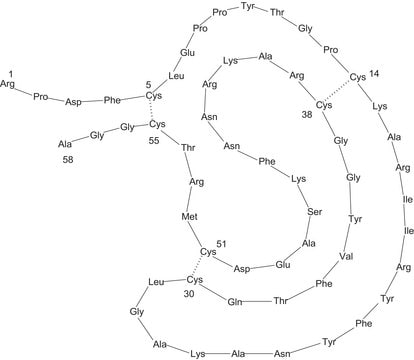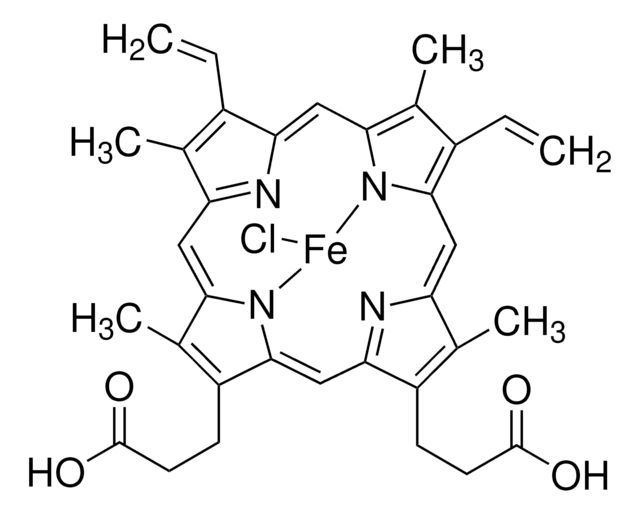F9128
5′-(4-Fluorosulfonylbenzoyl)adenosine hydrochloride
Synonym(s):
Adenosine-5′-(4-fluorosulfonylbenzoate) hydrochloride, FSBA
About This Item
Recommended Products
biological source
synthetic (organic)
Quality Level
Assay
≥95% (TLC)
form
powder
solubility
methanol: 50 mg/mL, clear, colorless
storage temp.
−20°C
SMILES string
Cl[H].Nc1ncnc2n(cnc12)[C@@H]3O[C@H](COC(=O)c4ccc(cc4)S(F)(=O)=O)[C@@H](O)[C@H]3O
InChI
1S/C17H16FN5O7S.ClH/c18-31(27,28)9-3-1-8(2-4-9)17(26)29-5-10-12(24)13(25)16(30-10)23-7-22-11-14(19)20-6-21-15(11)23;/h1-4,6-7,10,12-13,16,24-25H,5H2,(H2,19,20,21);1H/t10-,12-,13-,16-;/m1./s1
InChI key
ZUHVYHQVJYIHPN-KHXPSBENSA-N
Looking for similar products? Visit Product Comparison Guide
Application
Biochem/physiol Actions
Signal Word
Danger
Hazard Statements
Precautionary Statements
Hazard Classifications
Eye Dam. 1 - Skin Corr. 1B
Storage Class Code
8A - Combustible corrosive hazardous materials
WGK
WGK 3
Flash Point(F)
Not applicable
Flash Point(C)
Not applicable
Personal Protective Equipment
Certificates of Analysis (COA)
Search for Certificates of Analysis (COA) by entering the products Lot/Batch Number. Lot and Batch Numbers can be found on a product’s label following the words ‘Lot’ or ‘Batch’.
Already Own This Product?
Find documentation for the products that you have recently purchased in the Document Library.
Our team of scientists has experience in all areas of research including Life Science, Material Science, Chemical Synthesis, Chromatography, Analytical and many others.
Contact Technical Service








